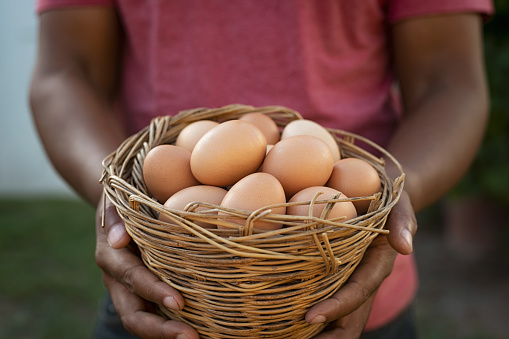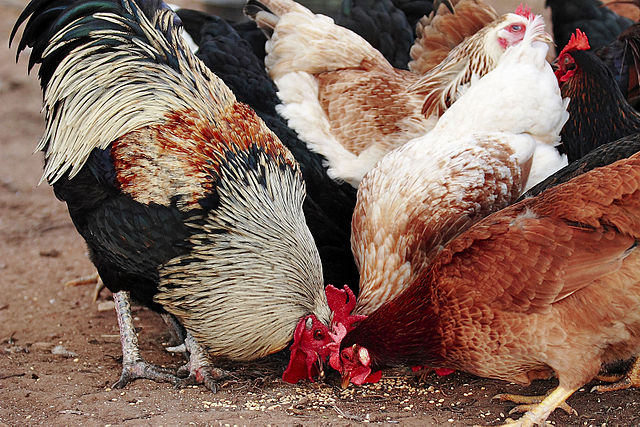
By Gemma Handy
Around one in three of the country’s 100-plus egg farmers are at risk of going out of business unless urgent action is taken to stymie the spiralling costs of production.
That was the stark warning yesterday from the country’s Poultry Farmers Association, as farmers grapple with the effects of soaring feed, fuel and freight costs.
Association chairman Marvin Joseph spoke to Observer shortly after government announced the price of a dozen eggs could surge within days.
The wholesale rate leapt from EC$8 to EC$10 during the peak of the pandemic – and Information Minister Melford Nicholas said yesterday eggs could soon rise to EC$13, the latest manifestation of the increasing cost of living.

The Ukraine crisis, increased global demand for goods, and supply chain bottlenecks have dealt a double whammy in Antigua and Barbuda as they have worldwide – hitting consumers in the pocket and threatening to put the boot into local enterprise.
“The last two years have seen significant increases in the cost of chicken feed. A bag used to be EC$45-48 – now it’s almost EC$60 and it’s just going up,” Joseph said.
“There’s been an increase in fuel; without a doubt electricity is going to go up too. The cost of buying chicks has increased; even egg boxes have increased in price because of rising freight charges.”
Small farmers are particularly hard hit by surging shipping costs, Joseph explained.
“Freight used to be minimal. Now we are being charged per pallet so if a small farmer is buying 1,000-3,000 chicks and a pallet holds 10,000, they will be charged for a full pallet,” he said.
“It’s becoming extremely difficult for them to remain competitive.”
In recent years, the country’s egg farmers have been able to produce enough to feed the nation.
Fears are now rife that residents will be forced to buy cheaper, imported counterparts instead.
“It requires some brainstorming to stabilise or minimise the cost of production,” Joseph continued.
“We have more than 100 egg farmers in the country, around 40 percent of whom have small operations.
“If costs keep going up, it will wipe out most of those small farms.”
An industry consultation is set to be held on Tuesday to thrash out ideas for saving the sector.
Joseph said recent fuel subsidies to offset the March 15 gas price hike do little to help egg farmers unless they use gas generators.
He said expanding the use of solar energy and offering concessionary storage space – similar to lockers afforded to fishermen – would go some way to easing the financial burden.
Eggs have traditionally been one of the cheapest sources of protein on the market, relied on by families across the country.
Minister Nicholas told media yesterday that government was striving to help find cheaper sources of chicken feed from neighbouring countries.
Farmers were “under significant strain” and may not be able to hold out much longer, he told Thursday’s post-Cabinet press briefing.
“They hinted that, by Friday, they wanted to move to raise prices. We have already seen a box of eggs move from $8-10,” he said, adding that there was a “likelihood” of a wholesale dozen rising to $13.
“We have asked them to hold on a little longer while we work out some modalities in helping them lower their costs.”
Yesterday’s Cabinet notes warned that a price hike would see imported eggs become more affordable to large consumers like hotels and supermarkets.
“The Cabinet is unwilling to keep imported eggs out of the market if it would mean an increase in the cost of living.
“The Cabinet is very much aware of the increased costs which the local egg producers face but implores them to keep their prices competitive, such that there will be no need for imports to displace them,” the notes said.
Government plans to have accountants examine the cost of producing eggs and suggest ways to bring it down.
“Yes, farmers have to protect their profit margins, but we don’t want it to be to such an extent that the cost of the egg moves to a point where it becomes uncompetitive,” Nicholas added.
